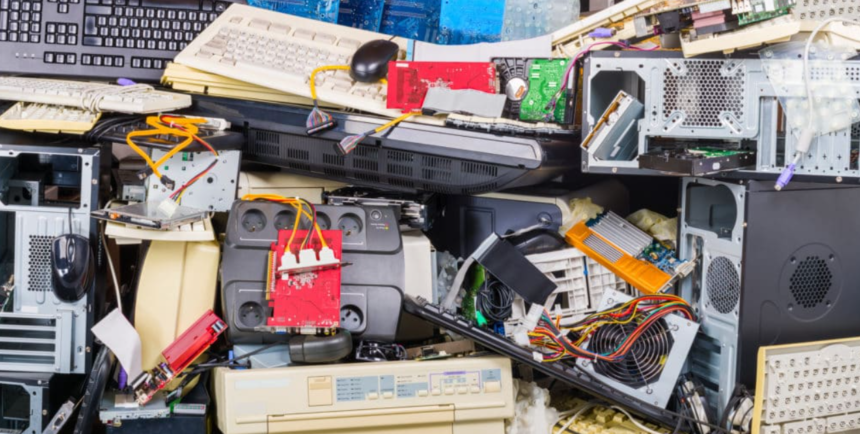Manufacturers, distributors, and importers bear significant responsibilities under extended producer responsibility (EPR). That encompasses obligations related to the responsible disposal and recycling of their products. The focal points of EPR intricately link to the WEEE Directive, Packaging Directive, and Battery Directive.
Compliance with these directives is not just a choice but a legal obligation. In particular, the proper take-back and disposal of electronic waste, packaging, and batteries form essential components of a company’s commitment to the producer responsibility framework. The article delves into the multifaceted realm of extended producer responsibility (EPR), a critical facet that manufacturers, distributors, and importers must navigate.
1. Understanding WEEE Directive
Amidst the surge in electronic and electrical equipment waste, manufacturers, distributors, and importers grapple with substantial responsibilities. The pivotal WEEE regulations stand as a regulatory cornerstone, addressing the responsible disposal and recycling of electronic waste and placing legal obligations on stakeholders throughout the product lifecycle.
Recycling service providers empower businesses to navigate producer responsibility, such as the Weee directive ensuring responsible waste management while providing global take-back solutions. That helps companies to explore compliance strategies and avoid non-compliance ramifications.
By adhering to the WEEE regulations, manufacturers, importers, and distributors adhere to responsible waste management, fulfill legal obligations, and enhance corporate reputation. That fosters trust, enhances company reputation, and positions businesses as environmentally responsible.
2. Unpacking the Packaging Directive
Whether licensing, taking back, recycling, or disposing of your packaging, complying with obligations according to international packaging guidelines is imperative. The packaging directive under producer responsibility is a linchpin of environmental sustainability that bestows significant responsibilities upon manufacturers, distributors, and importers. The directive mandates the optimization of packaging materials to meet recovery targets.
Businesses committed to eco-friendly and recyclable packaging bolster their corporate image and cater to evolving consumer preferences. Following directive guidelines, importers ensure market access and benefit from sustainable practices.
In this landscape, the expertise of recycling service providers becomes pivotal, guiding businesses in efficient recycling, aiding compliance, minimizing environmental impact, and contributing to a circular economy. Partnering with these experts empowers enterprises to enhance sustainability, meet regulatory standards, and foster responsible packaging practices.
3. Complying with the Battery Directive
Businesses engaging in battery production and distribution must navigate the complexities of the battery directive. The directive, crucial for environmental sustainability, places substantial responsibilities on manufacturers and importers. It outlines stringent requirements for proper battery disposal and recycling, emphasizing responsible battery management to mitigate ecological impact.
Extended producer responsibility (EPR) becomes imperative, holding businesses accountable for overseeing the entire lifecycle of their battery products. Experts in recycling well versed with producer responsibility requirements help companies adhere to the battery directive, thus ensuring regulatory compliance while fostering sustainable battery disposal and recycling practices, contributing to a circular economy and environmental stewardship.
4. Traceability and Documentation
Maintaining accurate records and documentation of a product’s life cycle, from production to disposal and recycling, is essential for businesses committed to environmental responsibility and extended producer responsibility (EPR). The commitment ensures compliance with regulations, aids in meeting reporting obligations for manufacturers and importers, and tracks progress toward recycling targets.
Comprehensive traceability fosters transparency, accountability, and strategic environmental practices. A reputable recycling service provider helps businesses comply with regulatory inquiries or audits by ensuring recycling compliance and updating records to reflect their dedication to compliance effectively. The commitment refines environmental practices and builds trust with stakeholders, reinforcing a positive image as responsible contributors to environmental stewardship.
5. Financial Responsibility
The end user of products under Extended Producer Responsibility (EPR) enjoys the benefits of responsible waste management without shouldering the financial burden. EPR places financial responsibility on producers to contribute to waste management and recycling programs, absolving end users of direct financial obligations.
The approach allows end users to participate in sustainable practices without direct financial responsibilities, ensuring that businesses and producers uphold their obligations for effective waste management and environmental sustainability. That fosters a system where end users can enjoy eco-friendly products and disposal practices without additional financial commitments.
In conclusion, embracing a proactive approach to complying with producer responsibility is paramount for manufacturers, distributors, and importers. Identifying a recycling expert ensures adherence to legal obligations while championing environmental sustainability. The strategic partnership fulfills regulatory requirements and promotes a commitment to sustainability, fostering a harmonious balance between business operations and ecological well-being.














